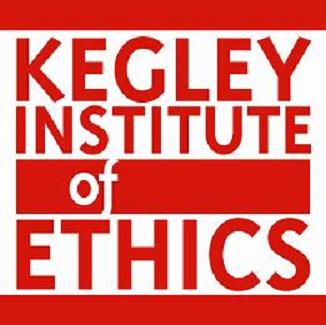Fostering Environmental Ethics Amid the Climate Crisis
Submitted by 2023-24 KIE Valley Strong Student Fellow, Sarah Alame
Extreme wildfires, loss of biodiversity, and ocean acidification – these are just a few terms that carry deep feelings of sadness and remorse as they remind us that our collective actions over decades have contributed to the increased severity of the ongoing climate crisis. As a child, I developed a deep interest in understanding the different causes of climate change and how humans can mitigate those effects on natural environments. My curiosity grew as I learned about how every single organism, no matter how small, can contribute to the intricate processes that maintain ecosystem balance and efficiency. I witnessed the beauty of nature firsthand in areas that are untouched by humans versus industrialized and urban environments where nature can only be found in small parks and windowsill planters. I understood that the only way to see change is to step up and to take action.
Three years ago, I was hired as the Sustainability & Energy Management department’s student assistant and witnessed the gaps in our university that needed to be addressed. Under the guidance of my supervisor, Jennifer Sanchez Biedermann, I was encouraged to push beyond my comfort zone and to step into leadership roles within Associated Students, Inc. and the club, Students for Sustainability. Embracing the challenge, I became an advocate for climate action and environmental justice. Seeing the power of collective action and the impact it could have on our community, I knew that my KIE Valley Strong Student Fellowship project needed to also revolve around environmental ethics.
Environmental ethics is a term that encompasses our interconnectedness with nature as well as our inherent responsibility of preserving natural resources and conserving global biodiversity. It is a principle that reminds us that humans are not the sole inhabitants of this planet, and that we are just one among the millions of other species that serve various functions on Earth, and we must learn to coexist. Although society has glamourized overconsumption and materialism, it is our duty to educate ourselves and incorporate sustainability within our daily lives.
Sustainability can be thought of as a lifestyle in which we continue to have our needs met without compromising the environment in the process. One small way this can be achieved is by eliminating single-use plastics from our households and replacing with items that are reusable (i.e. using reusable silicone sandwich bags instead of plastic bags). There are steps we can take that would also benefit us tremendously, such as planting fruit-bearing plants and trees in our garden and composting our food scraps that would then be used to fertilize those same plants. We can also join local organizations dedicated to educating others about the importance of being sustainable and providing resources to help us be more mindful of our impact on the environment, ultimately mobilizing our community and solidifying our commitment to environmental stewardship. Regardless of the damage already inflicted on our planet, it is not too late to act and to strive towards a healthier planet for future generations; it just takes a bit of curiosity and determination to make a difference, and we can collectively pave the way for a brighter and more sustainable tomorrow.





